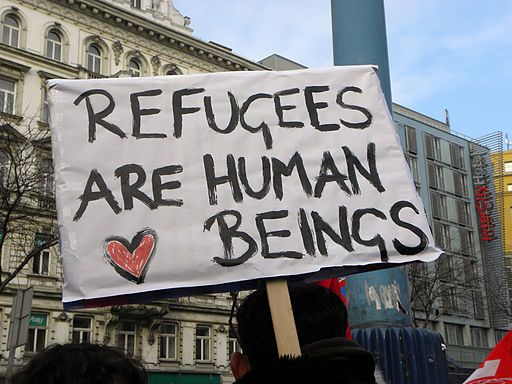Last week we compared the refugee/migrant wave with a tsunami. However, maybe that was being a little generous to the government, as a tsunami is unexpected and you cannot fully prepare for it.
Symbolic, no substance
And besides, this ‘tsunami’ was not unexpected and yet we have seen no preparations from the government. However, the minister for integration has realised her intention to advertise Danish policy in the Lebanese newspapers.
We understand that Lebanon holds a million Syrians who do not live in camps but are bunking up with relatives or in temporary dwellings.
These people get no allowance at all, so to frighten them with the message that Denmark has cut down on allowances and benefits seems a contradiction in terms.
With 3 million desperate Syrians on the move it would appear the money could have been better spent. And it was symbolic at best. Very soon she will have to handle thousands of migrants and refugees – whether she likes it or not.
Good old Germany
The good news is that Germany has taken a positive attitude and opened her arms to taking in more than half a million in 2015 and 2016. And the people are mostly following suit, even though there are parts of the country that have an unemployment rate of 8-10 percent (national average is 6.3). A few naysayers are popping up here and there, but generally being hushed down. As Chancellor Merkel said: “We have to be open and welcome these people. It was not always so in this country.” Respect.
And even better, the Danish people have reacted in a generally positive fashion. They are meeting, greeting and handing out clothing and other useful items to a group of people who are travelling strictly hand luggage only.
Forgetting the root causes
All the while we have seen Danish – and other – media focusing on the exodus from Syria, most particularly a drowned three-year-old boy who quite possibly got more attention than the thousands of others who have died so far this year as overcrowded, overcharging vessels sink to the bottom of the Mediterranean.
The events in Syria, meanwhile, are only of marginal interest, even though they directly explain why there are suddenly so many people on the move across Europe. While the leaders of Europe meet to take as little responsibility as they can for sheltering them, there is still no agreement on what needs to be done to bring an end to the chaos in Syria – and then eventually the huge exodus that followed.
The acid test
We were under the impression that the Greek crisis was Europe’s acid test, but now it seems that dealing with the Syrian exodus will be the ultimate challenge.
We hope the politicians realise they are personally more afraid of the new arrivals than the population, and that the population will have a chance to show them they are better than they thought.


